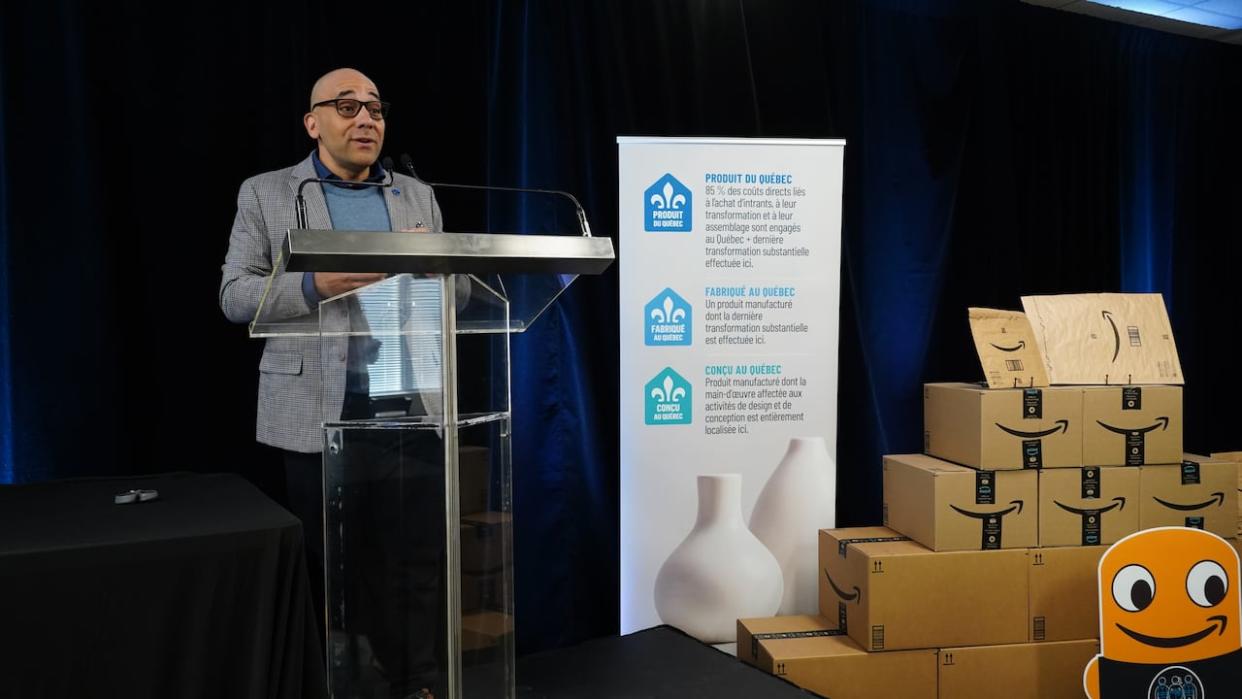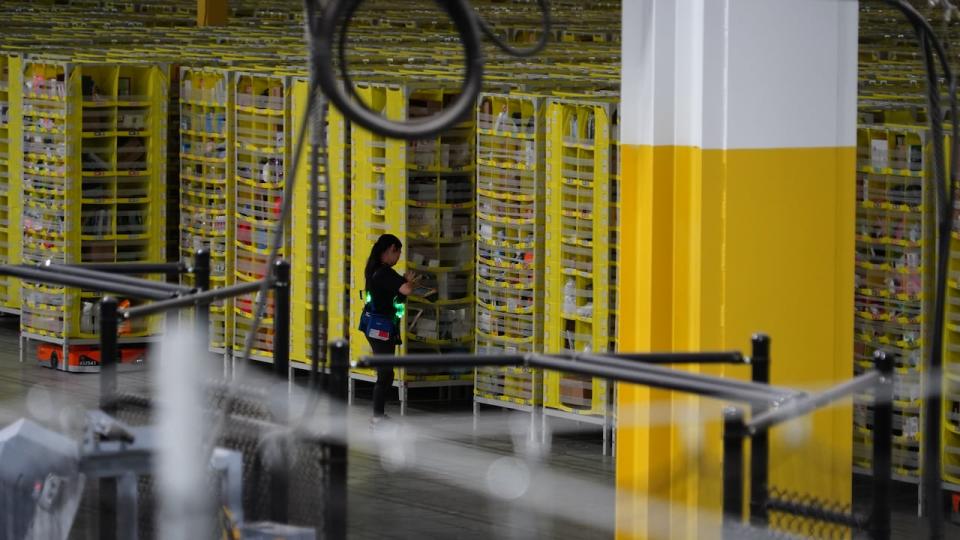Quebec teams up with Amazon to offer locally made products

The Amazon fulfilment centre in the Montreal borough of Lachine is largely automated, with about 400 employees helping ship as many as 70,000 products daily.
As of Tuesday, some of those products are certified as produced, manufactured or designed in Quebec.
This initiative is thanks to a partnership with Les Produits du Québec, a non-profit organization that, funded by the provincial government, aims to promote local products by certifying those made in Quebec.
"We have a process behind the logo, so people can be sure that the products are from Quebec," said Elfi Morin, the organization's general manager
Amazon is launching an online portal with more than a thousand products from Quebec, it says. Walmart and other distributors have similar deals with Les Produits du Québec.
This isn't the first time Quebec has made an online push for local businesses. Four years ago, the province created Le Panier Bleu, which began as a directory for residents searching for Quebec-made products.
The site was launched early in the pandemic to help stimulate the economy by giving small businesses help competing against corporations.

Amazon will be offering a range of Quebec-made products, certified by Les Produits du Québec. (Charles Contant/CBC)
For the last two years, Le Panier Bleu has served as an online shopping platform with Quebec-certified products available from a wide range of companies. But in the spring of 2023, it was revealed that a mere 600 out of 100,000 available products were actually from Quebec.
Le Panier Bleu is still operating today, but Quebec isn't stopping there.
"You have to be where the customers are. If you want people to buy locally, you have to be where they are," said Christopher Skeete, Quebec junior economy minister. "The more places we have, the more Quebecers win."
However, François Vincent argues that teaming up with online giants like Amazon spells disaster for Le Panier Bleu.
"The Quebec government is taking a chainsaw to Panier Bleu, it's sure that they won't be able to compete," said Vincent, who is vice-president of the Quebec branch of the Canadian Federation of Independent Business.
He said third parties, like Amazon, take a bite out of small retailers' profits.

The Amazon fulfilment centre in the Montreal borough of Lachine is largely automated, with about 400 employees helping ship as many as 70,000 products daily. (Charles Contant/CBC)
Either way, Moshe Lander, a senior lecturer in economics at Concordia University, said this initiative will ultimately cost customers more at a time when Canadians are much more concerned about money.
To top it off, he said, Quebec is putting too much faith in local production of goods.
Believing that manufacturing plays an important role in today's economy is an old-fashioned mindset coddled largely by older politicians who are latched onto the way things used to be, Lander said.
"The modern economy is the gig economy. It's the service sector economy. It's the people economy. Manufacturing is not nearly as important as it used to be," said Lander. "You can still have high-paying jobs in the province that don't require dirty, polluting factories."
Even when considering strain on the environment and transportation costs, it's still cheaper to produce products halfway around the world, he said. In the end, he added, those cost-cuts benefit the consumer.
"The fact is, producers will still find ways to be profitable by creating those long supply chains," he said. "To try to pull manufacturing back is merely inefficient."

